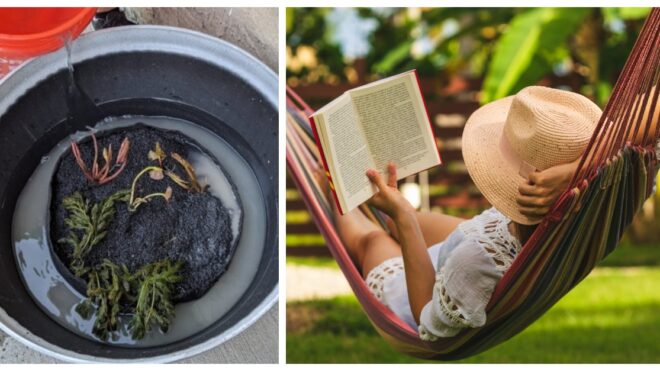
A lot of us are washing our hands quite often these days. And while it's great that we are — frequent handwashing is a powerful germ deterrent — all that handwashing does mean that you might end up with hands that are extra dry. Now that we're moving into the drier months of the year, this feels even more true. Luckily, there are plenty of handwashing tips out there.
Before we dive in, let's talk about what happens to your hands when you wash them frequently. For starters, you can actually make it more likely that you'll get an infection if you're washing your hands all the time and not taking care of them afterward. Frequent handwashing can also result in hand eczema or hand dermatitis, a condition that is especially common among hairdressers, health care workers, mechanics, and people who handle food frequently.
In general, it's best to wash your hands for about 20 seconds with soap and warm water. You also want to make sure you wash the backs of your hands, in between your fingers, and under your fingernails.
1. Use warm water.
This might surprise you, but the temperature of the water you wash your hands with can make a world of difference. Both very hot water and cold water can actually dry out your hands more quickly than lukewarm water will. It turns out that hot water strips your hands of their natural oils.
2. Check the ingredients in your soap.
One of the best handwashing tips out there is this one! Since a lot of soaps actually dry out the skin, it's really important to check the ingredients ahead of time. Keep an eye out for soaps that contain lanolin and glycerin and that also have a creamy texture — these are your friends!
3. Use lotion or moisturizer.
It might seem obvious to some, but follow up with lotion or moisturizer if you're washing your hands frequently. In general, it's perfectly OK to use the same moisturizer that you're using on your face on your hands, which might make it easier to remember if you're not already in the habit.
4. Wear gloves.
Wind can wreak havoc on your hands on cold days, so it's generally a great idea to keep your hands protected with gloves or mittens.
You can also wear gloves for a few hours or even overnight to give your hands an extra moisturizing boost. If your hands are super dried out, apply a thick lotion or moisturizer, and then pull on a pair of cotton gloves before bed.
5. Use hand sanitizer when you need to.
Generally speaking, it's better to use soap to wash your hands instead of using hand sanitizer. But if your hands are so chapped that handwashing becomes painful, using hand sanitizer instead of washing with soap will give your hands a little bit of time to recover.
6. Don't dry with paper towels.
If you have the option available to you, consider using a cotton towel instead of a paper towel to dry your hands. Cotton is gentler on the skin and can help prevent your hands from chapping. Cotton will also absorb the water from your skin a lot more effectively than a paper towel will. Keep in mind that you'll need to change out your cotton towel fairly often to prevent bacteria from growing.
7. Consider using a humidifier.
A lot of people find that their skin is drier in the winter already — this will probably be doubly true this season with all that handwashing! If you live in a drier climate, you'll definitely want to consider adding a humidifier to your home as we move into the colder, less humid months. This will also help keep your hands (and the rest of you) from drying out too much.
8. When in doubt, seek expert help.
Sometimes all the best-laid plans in the world can't do much to help us out. If your hands are so dry they're cracked and bleeding, it may be a good idea to consult a doctor or other medical professional. They'll be able to recommend tips that will keep your hands smooth and soft throughout the cold months and whatever lies ahead.







